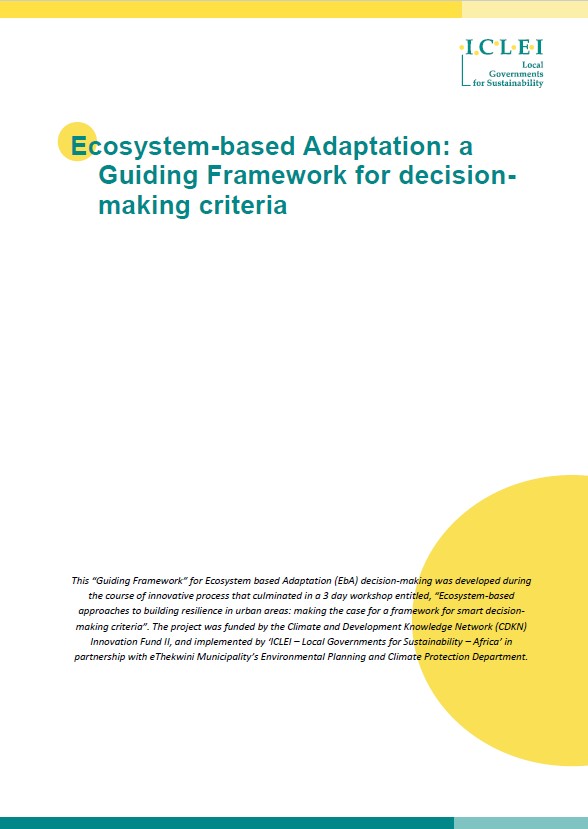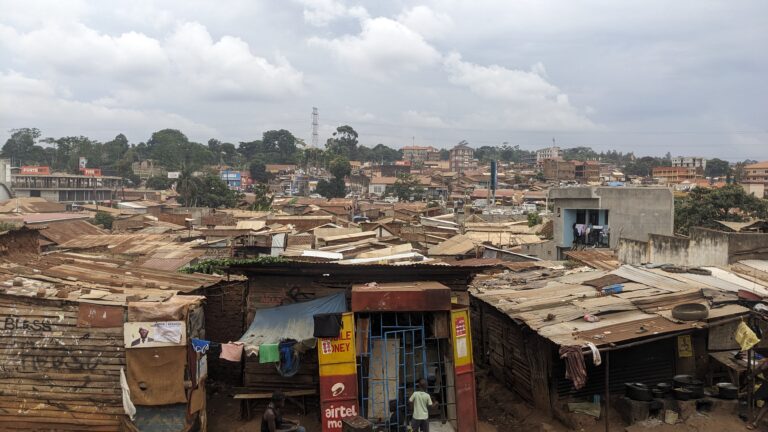



Download:
Related ICLEI Pathway(s)
About
Resource summary
This paper focuses on ecosystem-based adaptation (EbA) in urban areas, exploring the vast potential benefits that might be gained from using the multiple functions performed by large, often contiguous and interconnected, natural ecosystems such as soils, wetlands, catchments and coral reefs. With a growing number of implementation projects and key challenges in performance-management, this paper aims to open the debate on what constitutes effective urban EbA.
In an urbanising world, where more than 50% of the population already lives in cities, addressing the effects of climate change at the local level is critical to saving lives and livelihoods as well as to maintain social and economic well-being. In the global south, where Millennium Development Goals (MDGs) are only just starting to be met, this is an extremely pressing challenge and there is a substantial risk that many hard-won development gains will be undermined without timeous response, planning and implementation.
Globally, a variety of adaptation strategies, programmes and mechanisms are being developed and implemented to cope with a changing climate and to ensure long term approaches to sudden on-set and creeping disaster events such as droughts, floods, sea storm surges and hurricanes. A spectrum of adaptation approaches are possible including what can be described as “Delivering Adaptation Actions” (DDA) – i.e. practical actions to reduce vulnerability to climate risks or to exploit positive opportunities through to “Building Adaptive Capacity” (BAC) – i.e. developing institutional capacity to respond to the risks posed by climate change (UKCIP 2010).
Related resources

Understanding household access to cooking energy in informal Kampala

RISE Africa report 2025



